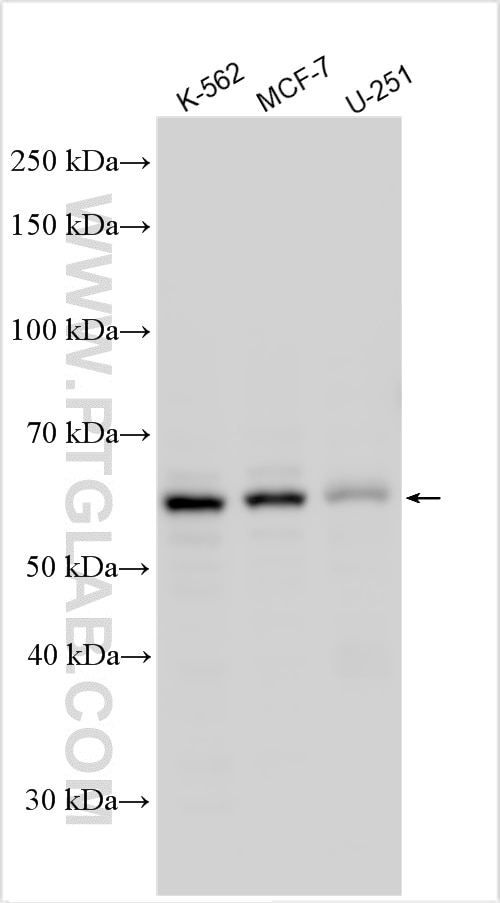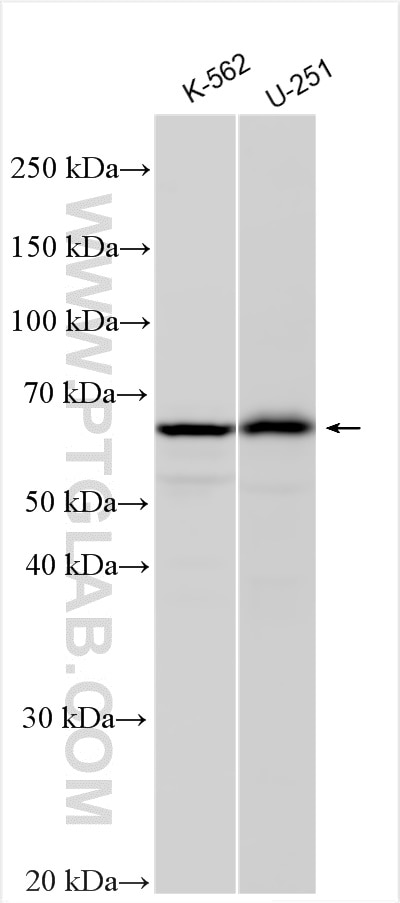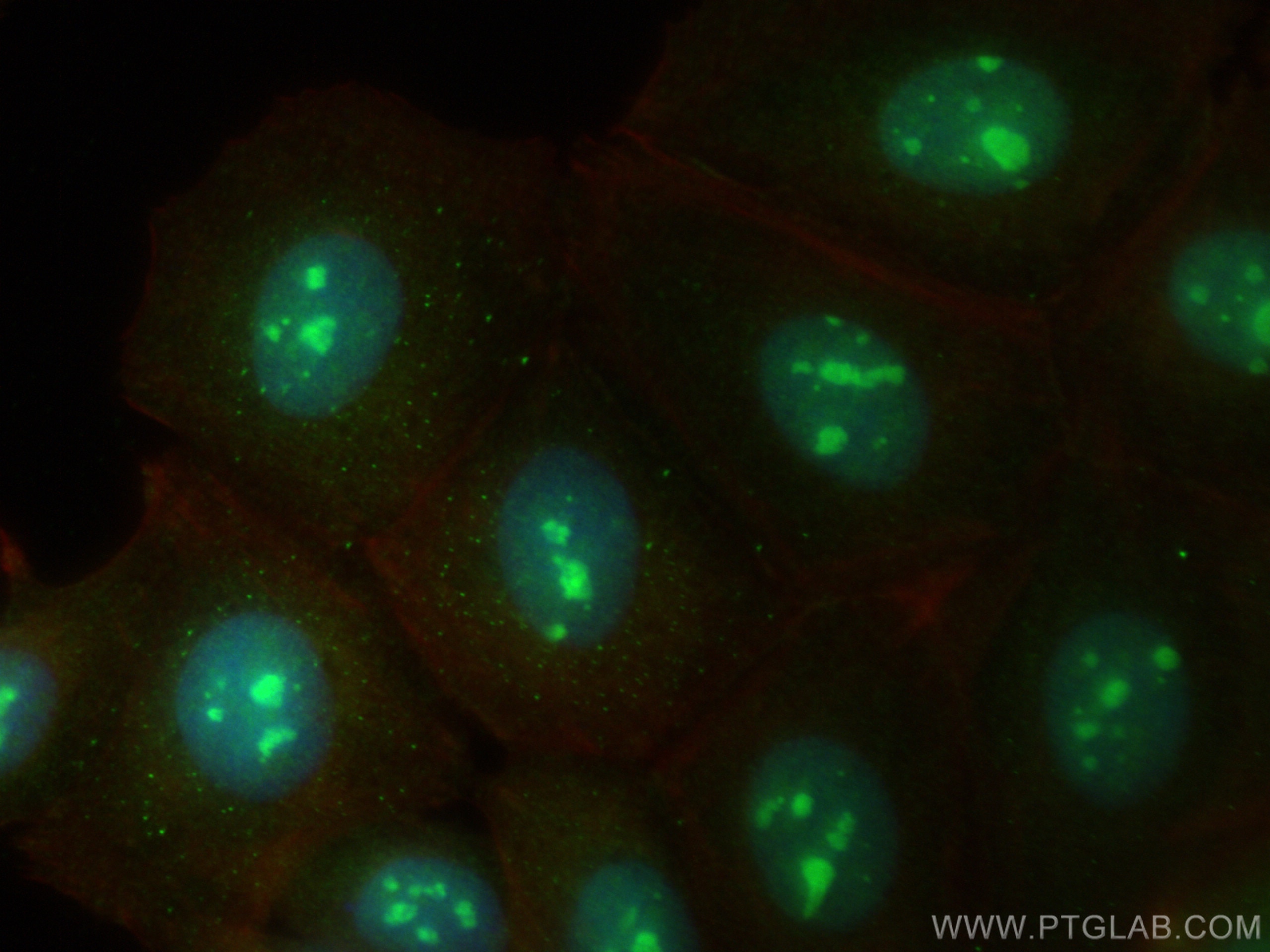Tested Applications
| Positive WB detected in | K-562 cells, U-251 cells, MCF-7 cells |
| Positive IF/ICC detected in | MCF-7 cells |
Recommended dilution
| Application | Dilution |
|---|---|
| Western Blot (WB) | WB : 1:2000-1:14000 |
| Immunofluorescence (IF)/ICC | IF/ICC : 1:200-1:800 |
| It is recommended that this reagent should be titrated in each testing system to obtain optimal results. | |
| Sample-dependent, Check data in validation data gallery. | |
Product Information
30115-1-AP targets KNOP1 in WB, IF/ICC, ELISA applications and shows reactivity with Human samples.
| Tested Reactivity | Human |
| Host / Isotype | Rabbit / IgG |
| Class | Polyclonal |
| Type | Antibody |
| Immunogen | KNOP1 fusion protein Ag32395 Predict reactive species |
| Full Name | chromosome 16 open reading frame 88 |
| Calculated Molecular Weight | 52 kDa |
| Observed Molecular Weight | 60 kDa |
| GenBank Accession Number | NM_001012991.2 |
| Gene Symbol | KNOP1 |
| Gene ID (NCBI) | 400506 |
| RRID | AB_3086234 |
| Conjugate | Unconjugated |
| Form | Liquid |
| Purification Method | Antigen affinity purification |
| UNIPROT ID | Q1ED39 |
| Storage Buffer | PBS with 0.02% sodium azide and 50% glycerol , pH 7.3 |
| Storage Conditions | Store at -20°C. Stable for one year after shipment. Aliquoting is unnecessary for -20oC storage. 20ul sizes contain 0.1% BSA. |
Background Information
Lysine-rich nucleolar protein 1 (KNOP1) is a nucleolar protein that interacts with zinc finger 106 protein. Also known as Tsg118, it was first reported in 1999 (3). KNOP1 is predominantly expressed in proliferating somatic cells and in male germ cells, and may therefore be involved in testicular development. (PMID: 37588747)
Protocols
| Product Specific Protocols | |
|---|---|
| WB protocol for KNOP1 antibody 30115-1-AP | Download protocol |
| IF protocol for KNOP1 antibody 30115-1-AP | Download protocol |
| Standard Protocols | |
|---|---|
| Click here to view our Standard Protocols |







